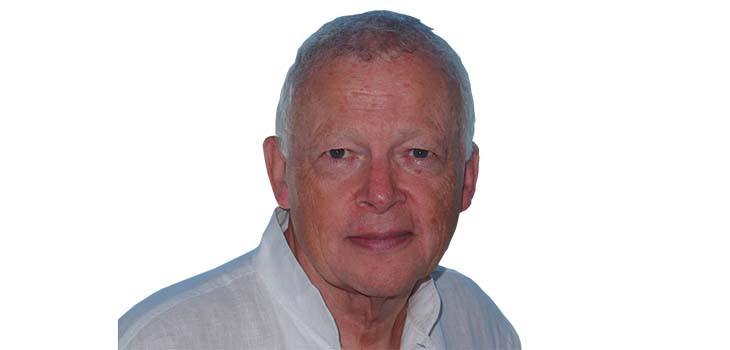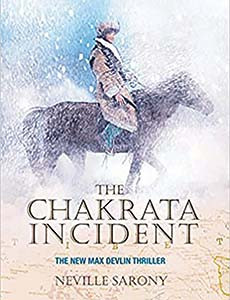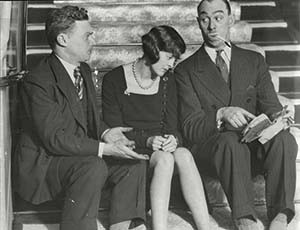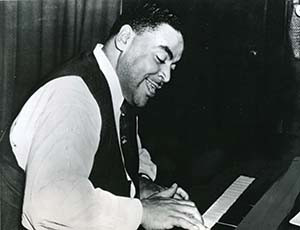*/

Growing up, when my father was a star of stage and radio, my immediate horizon was the theatre; performances of every description, live music, the mysterious way in which the actors did (or did not) electrify their audience and the free masonry of the backstage world. The pure magic of the moment the musical director tapped his baton and the pit orchestra broke the susurration of the crowd and the thrill began. The performers projected out over the stalls and up into the Upper Circle and held people spell-bound. Whether King Lear or Billy Elliot, great performances still move me to tears.
This dynamic engagement between actor and audience is what I see in jury trials; they are living theatre. It was my good fortune to see some of the great comedians like my father Leslie Sarony and Jimmy James. I would marvel at their timing and their skill in engaging their audience. A pause at an unexpected juncture could be remarkably effective; suspending the next line as the people hung on their words. On no more than a square foot of stage, they commanded the entire theatre, toying with them, drawing out the laughs, making them wait for the punch line. From them I learned the importance of timing for the advocate.
As a child, BBC Radio played an important part in informing and entertaining. Plays like Thurber’s The 13 Clocks liberated the imagination to conjure up characters. When I write my novels, I write the scenes as the story unfolds in my mind’s eye.
Music is a constant throughout my life. Draconian piano teachers almost killed my love for classical music, but not quite. My first classical LP was Tchaikovsky’s 6th Symphony Pathétique but I am a singer, so Puccini’s ‘Che gelida manina’ from La Bohème reminds me of an operatic career that I never ventured. The romance of ill-fated love resonates with me.
The first 78 gramophone record I bought was Thomas ‘Fats’ Waller’s Ain’t Misbehavin which gave me my fascination for stride piano. I love the spontaneity and improvisation of jazz. Developing a closing speech or submission constantly demands innovation and instructive allegory which is comparable to the shared synergy of jazz musicians’ extempore creativity as they bounce melodic phrases off each other, sensing, unspoken, where next to go.
When I compose a closing speech to a jury I am conscious of giving it a musical structure comprising different movements, pianissimo, al largo, sostenuto, building to a crescendo, always keeping in mind that humour is the most effective weapon. But it can only be effective if the jury has been engaged.
I have been a voracious reader for as long as I can remember; books are the great influence in my life. I even welcomed having to stay in bed with stomach ache or a sore throat because I could read without interruption. Two great stories left lasting legacies: Walter Scott’s Ivanhoe and Charles Kingsley’s Hereward the Wake. Saladin’s code of chivalric honour towards Scott’s protagonist impressed me deeply with the concept of men from different worlds and opposing forces finding a common humanity. Kingsley created a role model for the individual against overwhelmingly superior forces. Orwell’s Nineteen Eighty Four gave tangible shape to my early dystopian fears about where our society was headed. Within these stories lay the seeds of my loathing for bullies and the desire to fight for the underdog.
The single most influential event was being commissioned into the 7th Gurkha Rifles. I recount how this happened in my memoir Counsel in the Clouds. I had read all of John Masters’ novels before I joined the army but it was only after serving with Gurkhas that I appreciated his incredible insight into the peoples of the Indian Sub-continent and the Himalayas. He inspired me to start writing fiction and I cherish his letter encouraging me to never give up. Soldiers and the peoples of these regions are woven into the geopolitics of my novels.
My never-ending love affair with Nepal, the majestic power of its mountains and my symbiotic relationship with its remarkable people has given me both the greatest joy and the most enduring loss. My mantra for survival is from If, the poem by Rudyard Kipling: ‘If you can live with triumph and disaster / And treat those two imposters just the same…’
And the Bar? I suspect the 1948 production of Rattigan’s The Winslow Boy piqued my interest. The way the establishment lined up against the boy taught me about the overwhelming odds against an individual accused of crime. Lawyers pontificate about a level playing field whereas, in truth, it does not exist. As a fellow PI silk in Hong Kong once put it, ‘we’re not barristers, we’re street fighters’.
An item I could not do without for those long hotel stay-overs? A portable keyboard to play out frustrations, triumphs and disasters.





Growing up, when my father was a star of stage and radio, my immediate horizon was the theatre; performances of every description, live music, the mysterious way in which the actors did (or did not) electrify their audience and the free masonry of the backstage world. The pure magic of the moment the musical director tapped his baton and the pit orchestra broke the susurration of the crowd and the thrill began. The performers projected out over the stalls and up into the Upper Circle and held people spell-bound. Whether King Lear or Billy Elliot, great performances still move me to tears.
This dynamic engagement between actor and audience is what I see in jury trials; they are living theatre. It was my good fortune to see some of the great comedians like my father Leslie Sarony and Jimmy James. I would marvel at their timing and their skill in engaging their audience. A pause at an unexpected juncture could be remarkably effective; suspending the next line as the people hung on their words. On no more than a square foot of stage, they commanded the entire theatre, toying with them, drawing out the laughs, making them wait for the punch line. From them I learned the importance of timing for the advocate.
As a child, BBC Radio played an important part in informing and entertaining. Plays like Thurber’s The 13 Clocks liberated the imagination to conjure up characters. When I write my novels, I write the scenes as the story unfolds in my mind’s eye.
Music is a constant throughout my life. Draconian piano teachers almost killed my love for classical music, but not quite. My first classical LP was Tchaikovsky’s 6th Symphony Pathétique but I am a singer, so Puccini’s ‘Che gelida manina’ from La Bohème reminds me of an operatic career that I never ventured. The romance of ill-fated love resonates with me.
The first 78 gramophone record I bought was Thomas ‘Fats’ Waller’s Ain’t Misbehavin which gave me my fascination for stride piano. I love the spontaneity and improvisation of jazz. Developing a closing speech or submission constantly demands innovation and instructive allegory which is comparable to the shared synergy of jazz musicians’ extempore creativity as they bounce melodic phrases off each other, sensing, unspoken, where next to go.
When I compose a closing speech to a jury I am conscious of giving it a musical structure comprising different movements, pianissimo, al largo, sostenuto, building to a crescendo, always keeping in mind that humour is the most effective weapon. But it can only be effective if the jury has been engaged.
I have been a voracious reader for as long as I can remember; books are the great influence in my life. I even welcomed having to stay in bed with stomach ache or a sore throat because I could read without interruption. Two great stories left lasting legacies: Walter Scott’s Ivanhoe and Charles Kingsley’s Hereward the Wake. Saladin’s code of chivalric honour towards Scott’s protagonist impressed me deeply with the concept of men from different worlds and opposing forces finding a common humanity. Kingsley created a role model for the individual against overwhelmingly superior forces. Orwell’s Nineteen Eighty Four gave tangible shape to my early dystopian fears about where our society was headed. Within these stories lay the seeds of my loathing for bullies and the desire to fight for the underdog.
The single most influential event was being commissioned into the 7th Gurkha Rifles. I recount how this happened in my memoir Counsel in the Clouds. I had read all of John Masters’ novels before I joined the army but it was only after serving with Gurkhas that I appreciated his incredible insight into the peoples of the Indian Sub-continent and the Himalayas. He inspired me to start writing fiction and I cherish his letter encouraging me to never give up. Soldiers and the peoples of these regions are woven into the geopolitics of my novels.
My never-ending love affair with Nepal, the majestic power of its mountains and my symbiotic relationship with its remarkable people has given me both the greatest joy and the most enduring loss. My mantra for survival is from If, the poem by Rudyard Kipling: ‘If you can live with triumph and disaster / And treat those two imposters just the same…’
And the Bar? I suspect the 1948 production of Rattigan’s The Winslow Boy piqued my interest. The way the establishment lined up against the boy taught me about the overwhelming odds against an individual accused of crime. Lawyers pontificate about a level playing field whereas, in truth, it does not exist. As a fellow PI silk in Hong Kong once put it, ‘we’re not barristers, we’re street fighters’.
An item I could not do without for those long hotel stay-overs? A portable keyboard to play out frustrations, triumphs and disasters.






The Bar Council is ready to support a turn to the efficiencies that will make a difference
By Louise Crush of Westgate Wealth Management
Marie Law, Director of Toxicology at AlphaBiolabs, examines the latest ONS data on drug misuse and its implications for toxicology testing in family law cases
An interview with Rob Wagg, CEO of New Park Court Chambers
What meaningful steps can you take in 2026 to advance your legal career? asks Thomas Cowan of St Pauls Chambers
Marie Law, Director of Toxicology at AlphaBiolabs, explains why drugs may appear in test results, despite the donor denying use of them
Ever wondered what a pupillage is like at the CPS? This Q and A provides an insight into the training, experience and next steps
The appointments of 96 new King’s Counsel (also known as silk) are announced today
Ready for the new way to do tax returns? David Southern KC continues his series explaining the impact on barristers. In part 2, a worked example shows the specific practicalities of adapting to the new system
Resolution of the criminal justice crisis does not lie in reheating old ideas that have been roundly rejected before, say Ed Vickers KC, Faras Baloch and Katie Bacon
With pupillage application season under way, Laura Wright reflects on her route to ‘tech barrister’ and offers advice for those aiming at a career at the Bar